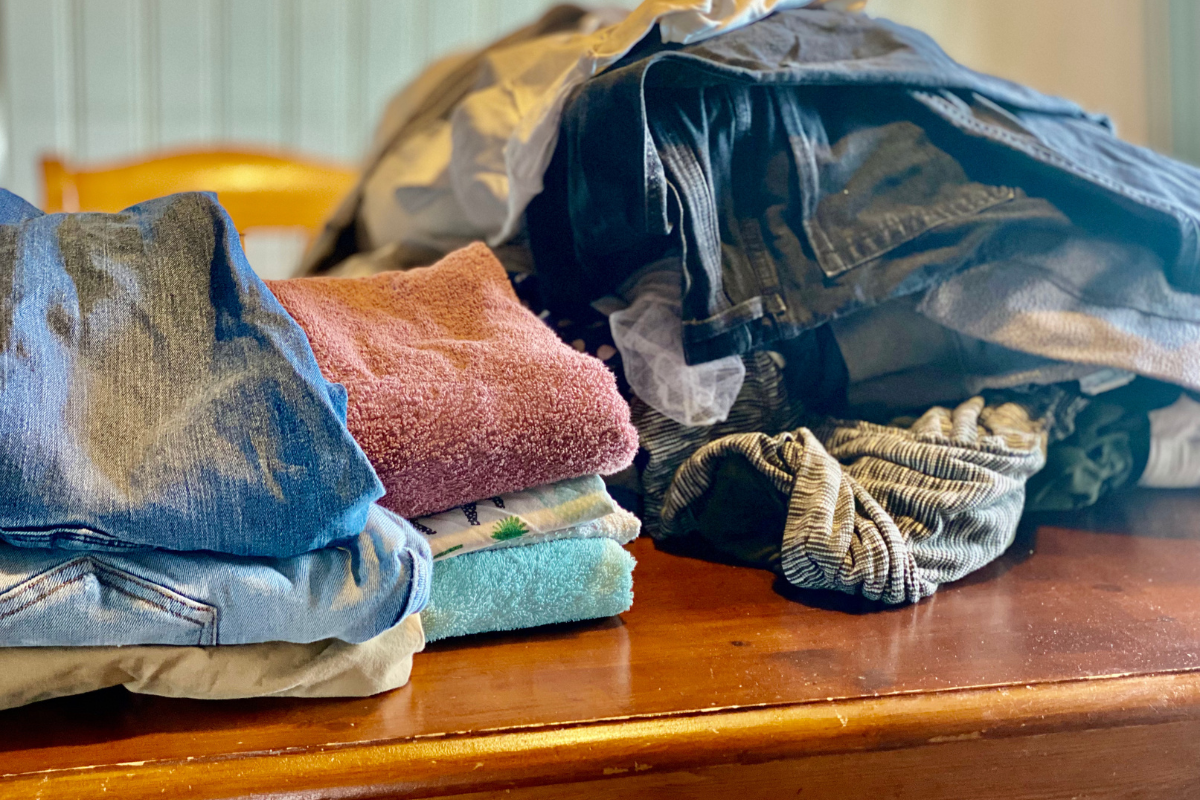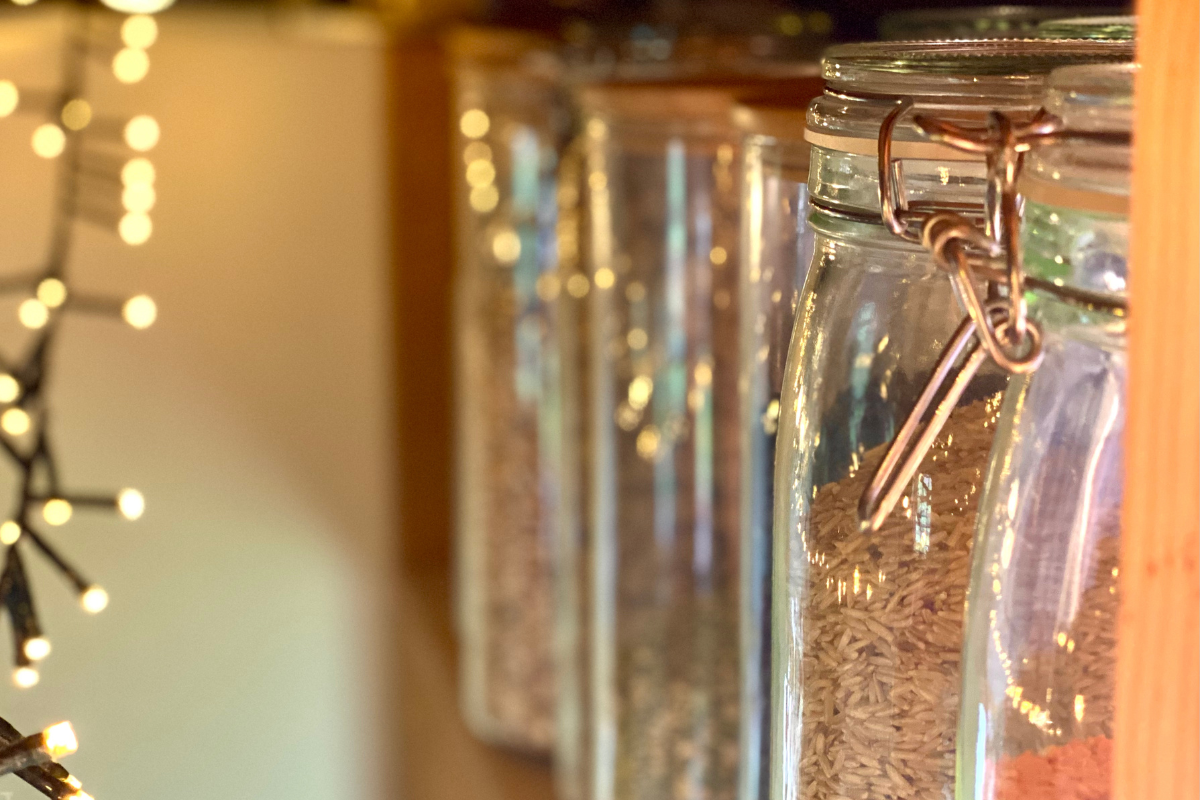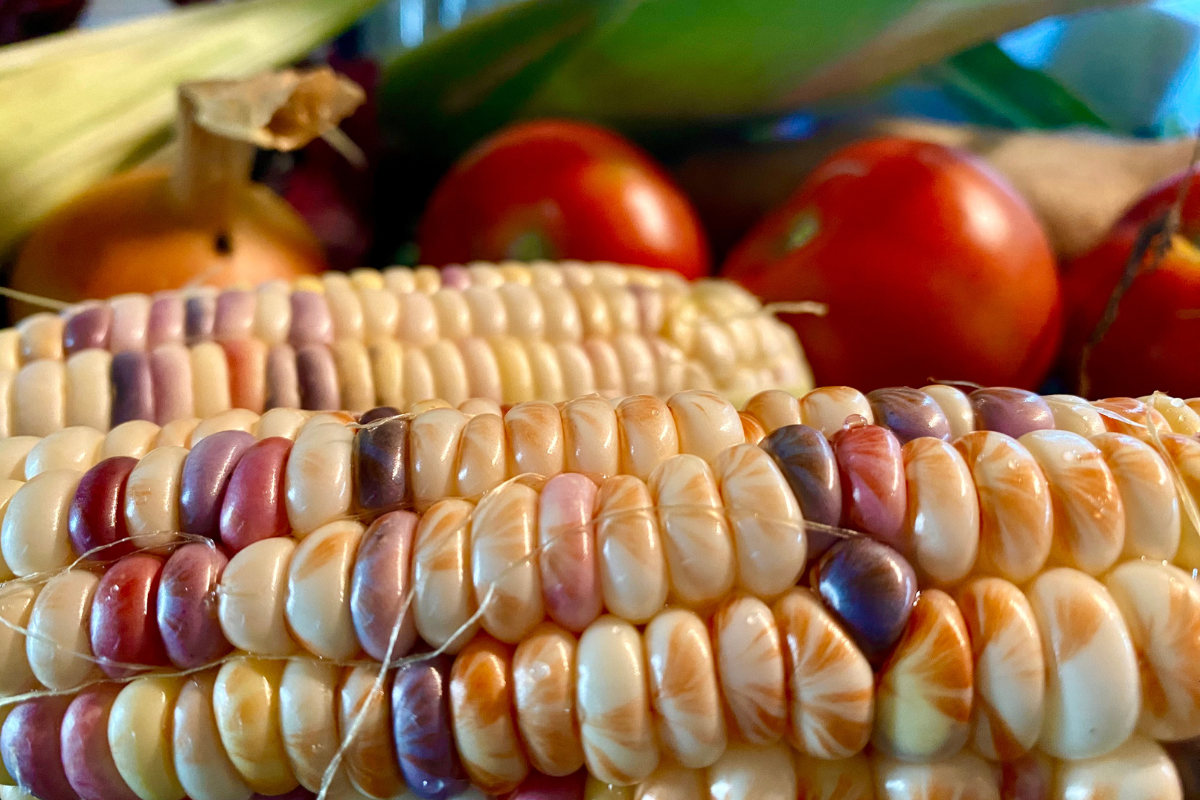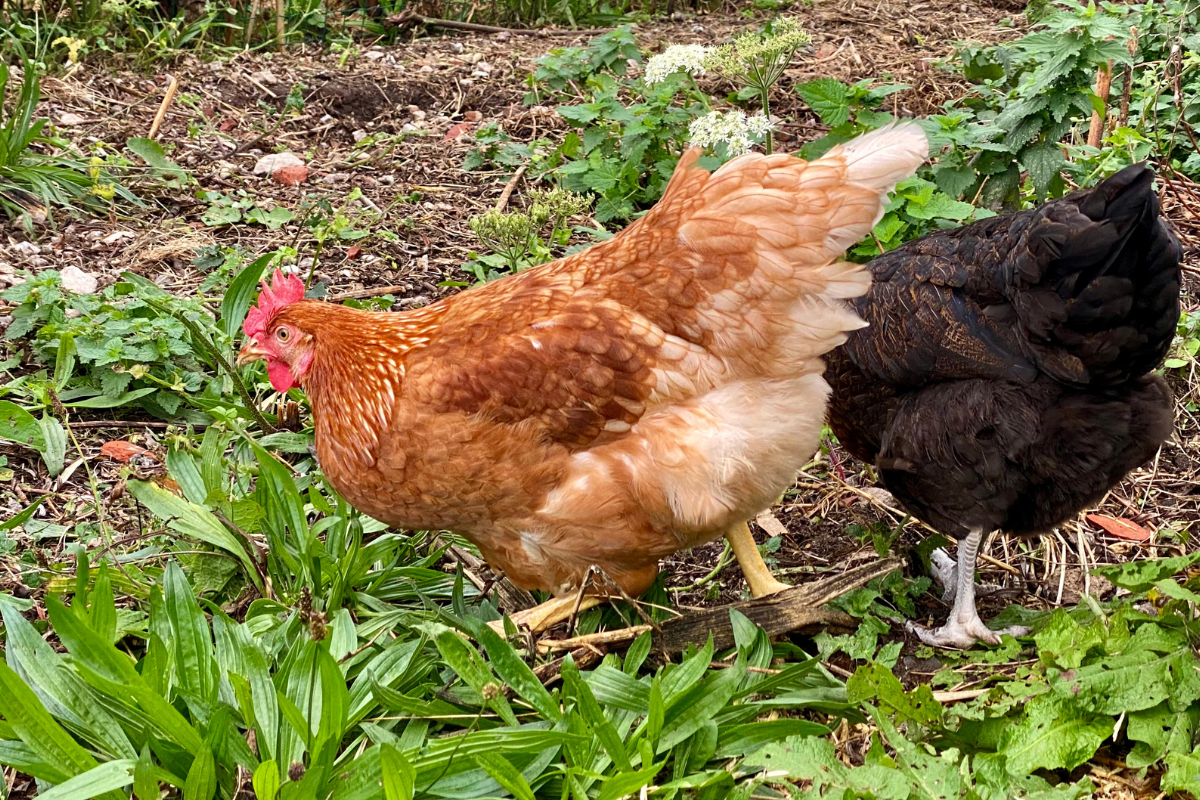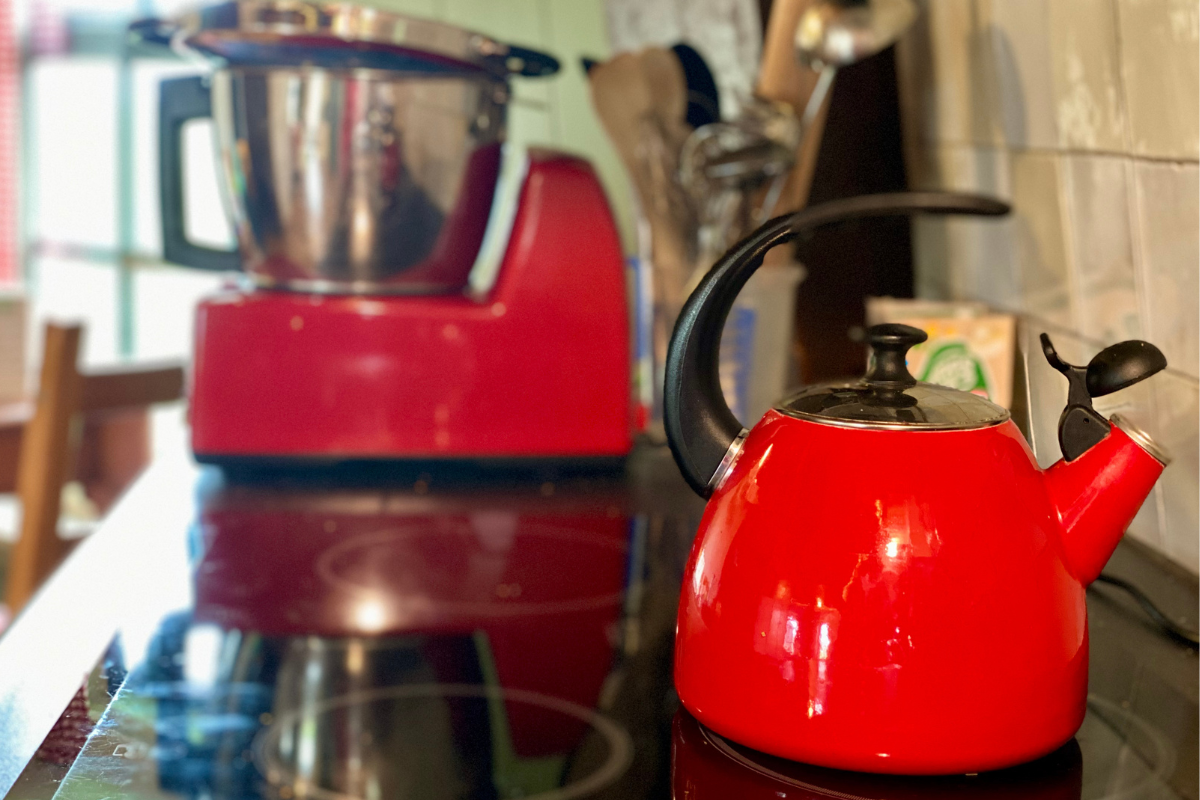9 hacks on how to save money on groceries
Are you trying to feed your family on a tight budget? Read along as I share my top 9 easy hacks to save money on groceries while keep eating healthy with real life examples on how to implement them.
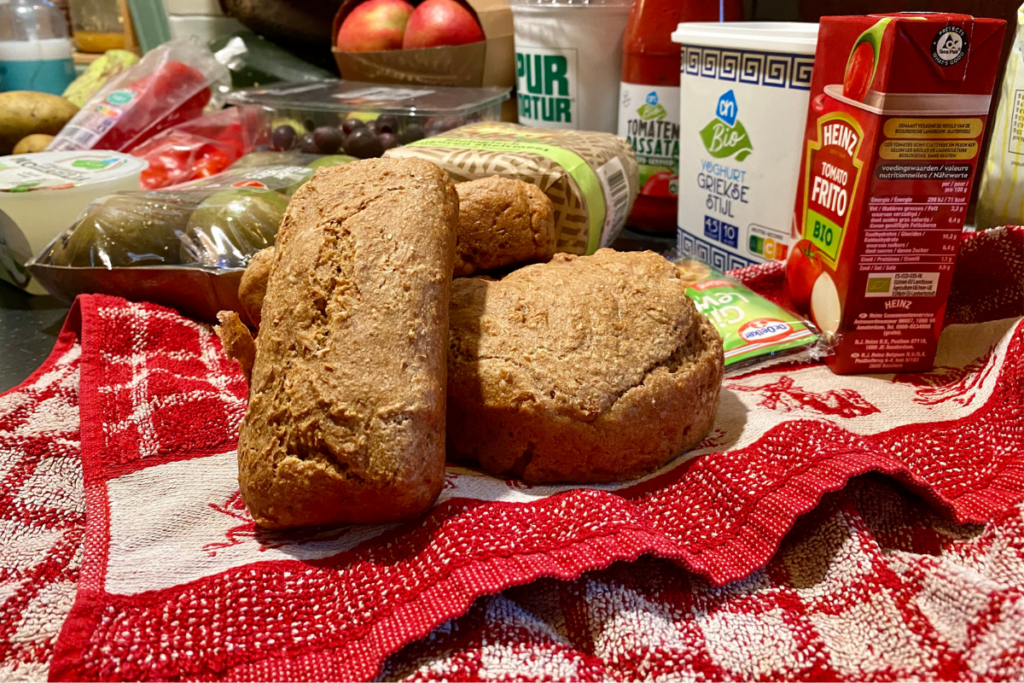
Make a budget
If you want to shop on a budget, first thing you need is a budget! In order to find out how much money you can budget every week ask yourself those questions:
- How much money did I spent on food per month in the last year?
- How much money do I actually have for groceries per week?
- How much money do I have for bigger purchases every year?
Look at your spending for the last year. How much did you spend on food including the money on eating out? I checked my spending and was surprised how little I spent every week using all hacks. I knew that I had enough money every month to spend that amount monthly. Additional to that I budgeted two months worth of my spending for bulk groceries. That’s how my budget for my family of three looks like: 75 euros weekly for regular groceries, 640 euros yearly for bulk groceries.
Save money on groceries with meal planning
The one thing everyone talks about when we talk about how to save money on groceries is meal planning. And there is something to it. I love that I only have to think about what to cook once a week. Another positive and also the biggest part on how to save money on our groceries is that I can make a grocery list and then have everything available when it is time to cook. I also can look at the whole week and make sure that we eat a variety of foods throughout the week. And the last thing I love about meal planning is that I can think about how to use and produce leftovers for the next days menu.
This is an easy example of a meal plan for one week:
| Day | Lunch | Dinner |
| Saturday | Tomato soup with onion bread | Lentil rice with paprika and tomato |
| Sunday | Potato beat mash with meat balls | Pumpkin lentil soup with bread |
| Monday | Leftover soup | Spaghetti |
| Tuesday | Sandwiches | Oven backed potatoes, black bean steak and green beans |
| Wednesday | Leftover potatoes, oven bakes veggies and tofu | Rice with kidney bean sauce and snack veggies |
| Thursday | Leftover rice, salad with tofu and leftover veggies | Pita bread, falafel and salad |
| Friday | Lasagne | Pizza |
This is an easy meal plan where I have several meals planned that I can prepare in advance or I can use leftovers. Every meal with rice and bread is possible to cook or bake with different grains such as buckwheat, rye, quinoa, millet, corn, oat, spelt or einkorn. The veggies are seasonal and I can use many bulk purchases I’ve made earlier.
For breakfast we eat eggs, yoghurt and fresh fruit every morning.
Check what you have on hand
Before you go grocery shopping and even before you meal plan you should check what you have on hand. That way you use up things before they go bad and you have to buy less new items.
My list of things I have in my pantry, fridge or garden for my meal plan of the week:
- Tomatoes and tomato sauce
- Onions
- Garlic
- Spelt flour
- Lentils
- Rice
- Potatoes
- Beats
- Pumpkins
- Spaghetti
- Black beans
- Veggies to bake in the oven
- Kidney beans
- Salad
- Yeast
There are things I add to meals I always have on hand to as herbs and spices, olive oil and coconut oil, salt, homemade hummus and other spreads, eggs etc.
Make a grocery list
When you have a meal plan and you know what you have on hand at home you can make a list of things you actually need to buy. When I sit down to write an actual shopping list I go by every single meal and if necessary even search for recipes for every item I need that I am sure that I get everything I need. I count My shopping list is short since many things I either have on hand from bulk purchases or I grow myself. This is my shopping list for the week:
- Paprika (11 pieces)
- Vegetarian meet balls
- Coconut cream
- Chickpea flour
- Green beans (1 serving)
- Tofu (3 pieces)
- Cucumber (1 piec)
- Chickpeas (bulk)
- Full grain lasagne sheets
- Mozzarella (2 pieces)
Buy in bulk to save money on your groceries
There are a few items I use all the time and I buy in bulk online in order to get the cheapest price. This can look different for everyone but I buy the items below in sacks around 20kg (50 pounds).
- Rice
- Flour
- Red lentils
- Kidney beans
- Oatmeal
- Black beans
- Chickpeas
This items I buy in quantities of 5kg (10 pounds):
- Millet
- White beans
- Salt
- Split green peas
- Buckwheat
- Whole rey
- Quinoa
- Brown beans
- Soy beans.
I think buying such large quantities is only useful if you use it in one year or less. Otherwise you risk wasting money on food that has gone bad.
You can choose to buy dairy products, eggs and meats in bulk as well. In the quantities we eat those products this hasn’t make sense to us though.
4 general principals to save money on groceries
Those four things make a huge difference in your spending as well:
- Cook from scratch
- Go to cheap stores
- Eat at home
- Go to the store less
Only buying whole food ingredients is mostly cheaper than processed foods. Oftentimes they are healthier too and come without preservatives and added salt. Sometimes I choose to buy processed foods as dry pasta or tofu. Those are generally good affordable products that have little ingredients and take a lot of work to prepare. So choose and balance what is best for your family.
Pretty stores come with higher prices. You pay for the shopping experience, the additional work for the store to unpack their items and the space between the halls. Therefore if possible I choose a cheaper store over the good experience to cut the bills.
When talking about how to save money on groceries I also want to mention that eating out is a huge load on our budget. Even cheap take aways are usually much more expensive than eating at home.
It seems kind of logical but if you go to the store less you will buy less! Every time I go to the store I take items with me that are not on my list. If I only go once a week, this temptation is limited to this one visit to the store.
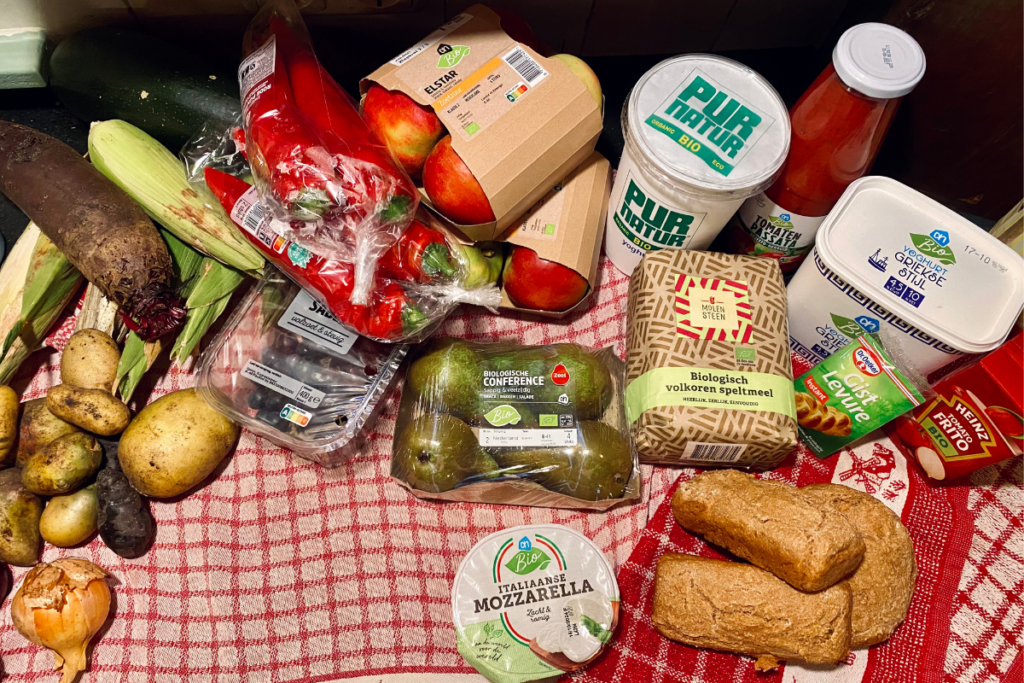
Two bonus tips
There are two lifestyle related tips that will help you to save money on groceries as well.
A study of oxford university showed that it is cheaper to eat vegetarian or even vegan. If you have a tight budget it might be worth considering adding in some vegetarian options for protein and fat some meals every week.
Another great way to save money on groceries is growing your own food or raising your own animals. This way, you’re not only saving money but also have full control on the quality and ethics of what you consume. Read about some examples on how to be more self sufficient as a beginner here.


